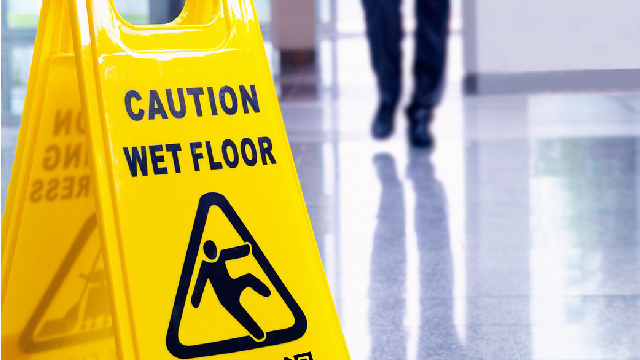
Plaintiff Evelyn Palavicini claimed she slipped and fell on liquid on the floor of a Wal-Mart store. She did not know how or when the liquid got on the floor, but alleged an unidentified female employee told her an air conditioning vent may have been leaking for one week before the incident. She sued Wal-Mart alleging it negligently failed to maintain its premises in a reasonably safe manner or to warn her of the dangerous condition posed by the liquid. Wal-Mart moved for summary judgment, and the district court granted the motion in Wal-Mart’s favor. The district court held Palavicini failed to provide sufficient evidence to support a reasonable inference Wal-Mart had constructive notice of the liquid on the floor. Palavicini appealed.
On appeal, Wal-Mart argued that the district court correctly concluded Palavicini could not meet her burden of proof to establish Wal-Mart had constructive notice of the transitory foreign substance that caused her slip or of an active leak from the ceiling or AC vent any time before the accident. Ms. Palavicini presented no competent evidence Wal-Mart knew of the substance before her incident. The record evidence showed she did not see the liquid before slipping in it, had no knowledge of the condition of the liquid before it got on the floor, did not know how long it had been there before she fell, did not know how it got there, and did not know of any Wal-Mart employees aware of its presence before her fall. As a result, Palavicini could not, as a matter of law, establish a prima facie case under Florida Statute § 768.0755.
The appellate court agreed with Wal-Mart. It held Palavicini failed to produce sufficient evidence to support a reasonable inference that Wal-Mart had constructive notice of the liquid on the floor or a leak from the ceiling. It therefore affirmed the district court’s grant of summary judgment in Wal-Mart’s favor.
Ms. Palavicini moved for rehearing arguing Wal-Mart had actual notice of the liquid on the floor. On rehearing the court addressed Palavicini’s arguments that Wal-Mart had actual notice of the liquid on the store’s floor because an unidentified woman (alleged to be a Wal-Mart employee) told her a vent had been leaking for a week. Wal-Mart in response asserted Palavicini failed to preserve this argument for appeal because it was not argued to the district court. In fact, Plaintiff conceded to the district court that Wal-Mart did not have actual notice.
The appellate court agreed with Wal-Mart. The court found that Palavicini’s failure to raise her claims of Wal-Mart’s actual notice before the district court, despite having been given several opportunities to do so, meant the court could not now weigh in on the substance of those arguments. For Palavicini to succeed in the appeal, therefore, she had to prove Wal-Mart had constructive notice of the dangerous condition. The court found Wal-Mart did not have constructive notice.
The appeal was handled by Partner Michael Dono and the district court proceedings by Partner Schuyler Smith and Associate Patricia Concepcion.